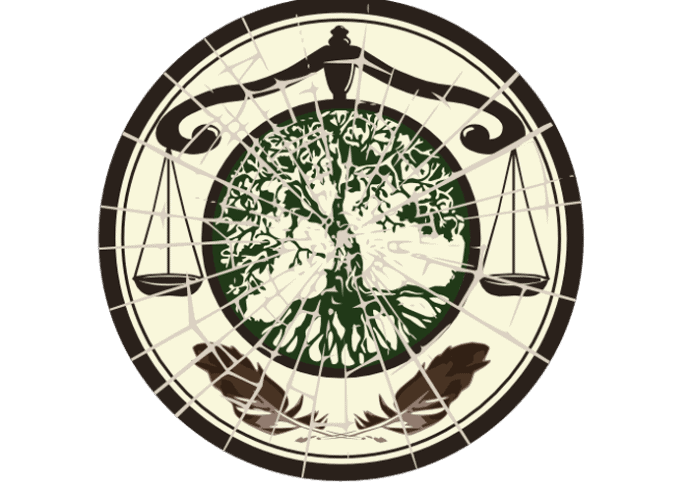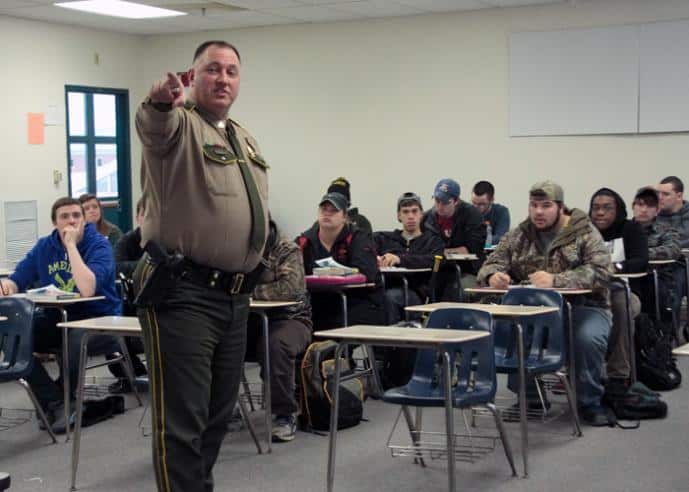Interests: Criminal Justice
Pre-Law
Restorative Justice
Focus Your Criminal Justice Degree on Restorative Justice at NVU.
Campus-Based Program at NVU-Lyndon
NVU-Lyndon’s innovative and comprehensive concentration in restorative justice is one of the firsts of its kind in the nation. Restorative and transformative justice are growing movements in both the fields of criminal justice as well as education. You’ll graduate with hands-on experiential knowledge about implementing restorative justice practices in your professional career, whether in policing or corrections, in victims’ advocacy work, or in schools as counselors, educators, or community resource officers.
Hallmark features of this concentration include advanced courses on applied restorative justice methods, victimology, as well as the foundation of peace-making theories. You’ll learn the skills and techniques of conducting restorative conferences as well as leading mediation circles. In addition, our program has a strong partnerships with leading restorative justice professionals in the state of Vermont — many of our students have completed internships or gained employment with the St. Johnsbury Community and Restorative Justice Center and Orleans County Restorative Justice Center.
Within restorative justice practices, circles are used widely as a response to crime, within schools to address student misconduct and/or conflict, as well as to offer support for offenders returning to the community. This past year, students in our applied restorative justice practices course participated in a circle with an offender, drawing upon their theoretical foundation of restorative and transformative justice as well as practicing the skills and techniques learned in their courses. This concentration would be well utilized by criminal justice students as well as students pursuing degrees in the fields of psychology, human services, social work, and education.
Courses within this concentration include: Race, Class, Gender, and Crime; Victimology; Community and Restorative Justice; Applying Restorative Justice Practices; and Peace Making.
Hybrid Option for NVU-Johnson Students
Starting in fall 2019, students at our Johnson campus can earn a bachelor of science in criminal justice with a concentration in restorative justice through our hybrid program. Take your general education classes on the Johnson campus*; complete your criminal justice major classes online.
* Campus-based students can also take online general education classes.
Criminal Justice
Pursue a Degree or Minor in Criminal Justice at Northern Vermont University
Student-Centered, Career-Oriented Curriculum
The criminal justice program at NVU-Lyndon allows students interested in a range of careers or who plan to go on to graduate school, to earn a B.S. or A.S. in criminal justice.
Our student-centered curriculum is unique, flexible, and allows you to focus on the areas of criminal justice studies that appeal to your interests. We offer summer, winter, condensed, and online classes as well, to work with your schedule and to make it possible for you to finish your degree early.
A broad range of course offerings will allow you to critically examine the criminal justice system as a whole. You’ll study traditional criminal justice systems, such as law enforcement, corrections, courts, and juvenile justice systems. You’ll also have the chance to explore contemporary issues such as terrorism, media and crime, environmental justice, and women, girls, and crime. No matter what your focus, however, you’ll graduate well-prepared for a career or graduate studies.
Unique Course Offerings
Classes like Investigation Sciences, GIS Crime Mapping in Communities, Advanced GIS Techniques, as well as a course on program evaluation and policy analysis (Criminal Justice Administration) will help you develop the professional, marketable skills you need to stand out in the job market. Our program also offers special topics courses offered each year, giving you the opportunity to explore contemporary criminal justice issues not often examined in depth within CRJ programs, such as hate crimes, the war on drugs, gangs, and rural criminology.
STUDENT PROFILE

Cole Stillson ’19
Cole Stillson ’19 wasn’t sure what he wanted to major in when he started at NVU-Lyndon, but it didn’t take him long to decide
An introductory criminal justice course taught by assistant professor Brandon Stroup showed him the path he wanted to follow, and he began making career plans. “The first criminal justice class just clicked with me,” Cole says. “I see laws as the representation of how politics or the opinions of people in power are expressed in public. I really want to be involved in that.”
INTERNSHIPS, PROFESSIONAL DEVELOPMENT, AND CAREERS
As a student in our criminal justice program, you’ll have countless opportunities to gain professional experience, learn from experts, build your resume, and expand your professional network.

Internships
Lyndon criminal justice program students have interned at:
- The Vermont Attorney General’s Office
- Northeast Correctional Facility
- The Vermont Corrections Academy
- Northeast Kingdom Youth Services
- The St. Johnsbury Community and Restorative Justice Center
- Local and State Police Departments

Networking and Professional Development
Students in the Criminal Justice Club participate in and help organize speaker series events, trips to the Border Patrol base in Newport, VT, participate in social trips to Montreal, and group study sessions. Students have also traveled and presented their independent student research alongside CRJ faculty members at the Northeastern Association of Criminal Justice Sciences annual meetings.

Careers for Criminal Justice Majors
Our alumni have gone on to careers in:
- Local and state police departments
- Correctional facilities
- Program/case workers in criminal justice and social work fields
- Federal law enforcement (Department of Homeland Security and FBI)
- Human trafficking investigations (both nationally and internationally), and graduate school
Associate of Science in Criminal Justice
NVU-Lyndon’s A.S. in criminal justice offers a flexible, student-centered curriculum that can be completed in a year and a half to two years. Summer, winter, condensed, and online class offerings enable you to complete your degree on your schedule.
View A.S. RequirementsConcentrations
Minors

Minor in Criminal Justice
As a criminal justice minor, you’ll gain a basic understanding about the field of criminal justice as you take classes in sociology, psychology, law and law enforcement, judicial process, criminology, corrections, ethics, and more.
View Requirements
Minor in Restorative Justice
A restorative justice minor provides you with a comprehensive theoretical background in the fields of peace-making and restorative justice as well as coursework involving the hands-on, experiential practices of applying restorative justice methodology. The restorative justice minor pairs well with majors in psychology, human services, social work, and education.
View Requirements
Pre-Law Minor
The pre-law minor, available at the Johnson and Lyndon campuses, will prepare students who plan to pursue a law degree. The minor covers criminal justice, political science, English and writing, and history. Some courses include: Criminal Law, U.S. Constitutional Law, and American Judicial Process.
View Johnson Requirements View Lyndon Requirements